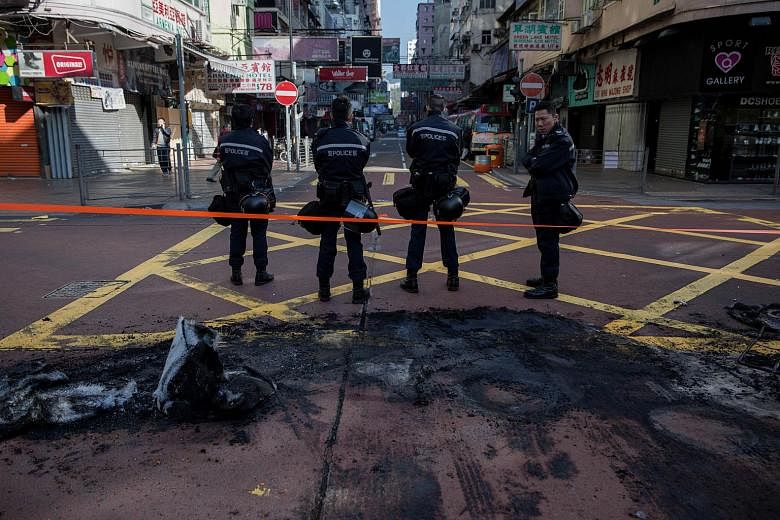In the months to come, the situation in Taiwan and Hong Kong for China will be one of volatility and tension, according to The Straits Times' senior regional correspondent Li Xueying.
Depending on the ongoing power play in Zhongnanhai, relations across the Taiwan Strait may get "more volatile", she said.
In Hong Kong, expect tension to rise with radical pro-independence groups gaining traction among its young people amid talk that current Chief Executive Leung Chun Ying - a distrusted and polarising figure - may get to serve another term.
Ms Li was speaking at the second of three quarterly briefings leading up to the annual Global Outlook Forum organised by The Straits Times. The focus yesterday was on China's most pressing challenges and its longer-term growth prospects.
"Next Friday, incoming (Taiwanese) President Tsai Ing-wen will be inaugurated, and her speech will be closely examined for whether she will affirm the 'one China' principle in some shape or form," Ms Li told close to 200 participants.
"Thus, while the Ma Ying-jeou years have brought about stability across the Taiwan Strait, they have also engendered a backlash against the warming ties," she said, citing the Sunflower movement in 2014 when students and activists occupied the legislature in protest against a trade pact with China.
Ms Tsai, who will face pressure to revive the Taiwanese economy, may be forced to take a more overtly pro-independence stance in order to consolidate support within her Democratic Progressive Party and distract the middle ground from the economy. "Taiwan had morphed from an Asian tiger to a second-, even third-rate, economy", which will take time to recover, Ms Li said.
Similarly, Hong Kongers would not be so angry if not for issues such as inequality and pollution.
There is now a strong sense of "despondency and uncertainty" about the city's future. This has led to tycoons such as Mr Li Ka Shing moving his companies out of Hong Kong, middle-class professionals considering emigrating, and young people seeking independence.
Beijing has responded by becoming more hardline, interfering openly in Hong Kong affairs - the government, the media and universities, said Ms Li. She also pointed out concerns over standards being compromised following the influx of mainland companies into the city.
What does all this mean for China, she asked rhetorically.
Beijing can afford to bide its time, said Ms Li, who does not see any resolution of the issues in Hong Kong and Taiwan in the near future.
Responding to a comment from a member of the audience that many economies are interlinked with China, she said: "We wonder how Tsai Ing-wen is going to try to turn around the economy by diversifying it. Is there really a choice to go beyond China? I don't think so."


